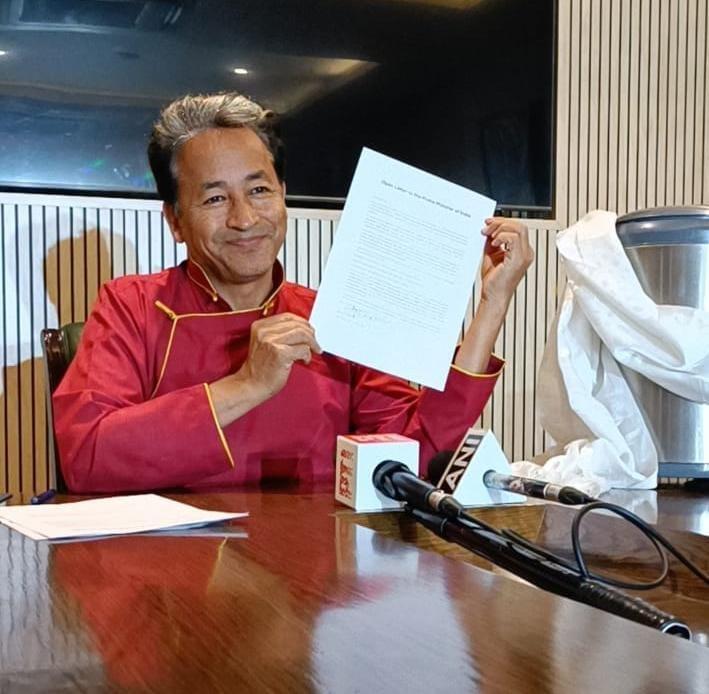
Title: Next Maha Kumbh will be on sand, rivers may dry up: Wangchuk to PM
In a dire warning, climate activist Sonam Wangchuk has written an open letter to Prime Minister Narendra Modi, highlighting the alarming rate at which Himalayan glaciers are melting. Wangchuk, a renowned environmentalist, has requested the Prime Minister to take the lead in framing special policies to protect the glaciers, fearing that if the current trend continues, the next Maha Kumbh might not take place on the banks of the Ganges River.
For those who may not be familiar, Maha Kumbh is a massive Hindu pilgrimage that takes place every 12 years, attracting millions of devotees from across the world. The event is held on the banks of the Ganges River, which is considered sacred in Hinduism. However, with the melting of Himalayan glaciers at an alarming rate, the future of this revered event is under threat.
In his letter, Wangchuk emphasized that the glaciers are melting at a rate of around 30-40 meters per year, which is higher than the global average. This rapid melting is not only a threat to the environment but also has severe consequences for the people who rely on the rivers for their livelihood. Wangchuk urged the Prime Minister to take immediate action to address this crisis, stating that the country cannot afford to ignore the plight of the Himalayan glaciers.
Wangchuk’s warning is not without basis. Recent studies have shown that the Himalayan glaciers are facing an unprecedented threat due to climate change. The Third Assessment Report of the Intergovernmental Panel on Climate Change (IPCC) warned that the Himalayan glaciers are likely to disappear by 2035. However, this timeline has been disputed by some scientists, who argue that the melting process is happening faster than anticipated.
The consequences of glacier melting are far-reaching and devastating. Rising temperatures are causing the snowline to recede, leading to reduced water storage in the glaciers. This, in turn, affects the flow of rivers, causing droughts and floods. The melting of glaciers also leads to the loss of biodiversity, as many species depend on the glaciers for their survival.
Wangchuk’s letter is not only a warning but also a call to action. He urged the Prime Minister to take the lead in framing special policies to protect the Himalayan glaciers. This includes investing in sustainable tourism practices, promoting renewable energy sources, and implementing measures to reduce carbon emissions. Wangchuk also emphasized the need for public awareness campaigns to educate people about the importance of glacier conservation.
The Maha Kumbh, which is considered one of the largest religious gatherings in the world, is a significant cultural event for India. The event attracts millions of devotees, who come to take a holy dip in the Ganges River. However, if the glaciers continue to melt at the present rate, the next Maha Kumbh might only happen on the “sandy remains of sacred (rivers)”. This thought is not only alarming but also heartbreaking, as it would mean the loss of a cultural heritage that is deeply rooted in Indian tradition.
In conclusion, Wangchuk’s letter to the Prime Minister is a wake-up call for the government to take immediate action to address the crisis facing the Himalayan glaciers. The melting of glaciers is a pressing issue that requires urgent attention, and it is the responsibility of the government to take the lead in framing policies to protect the environment. As Wangchuk emphasized, the next Maha Kumbh might not take place on the banks of the Ganges River if immediate action is not taken. It is our collective responsibility to ensure that this cultural heritage is preserved for future generations.
Sources:
https://x.com/Wangchuk66/status/1894382363523911816





